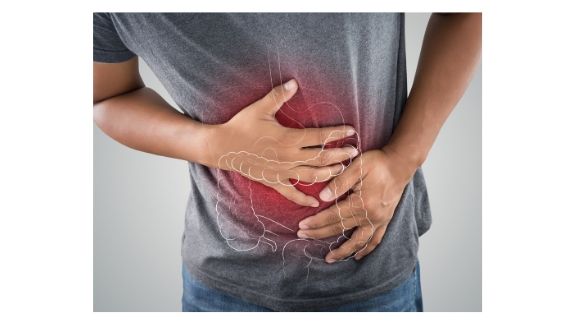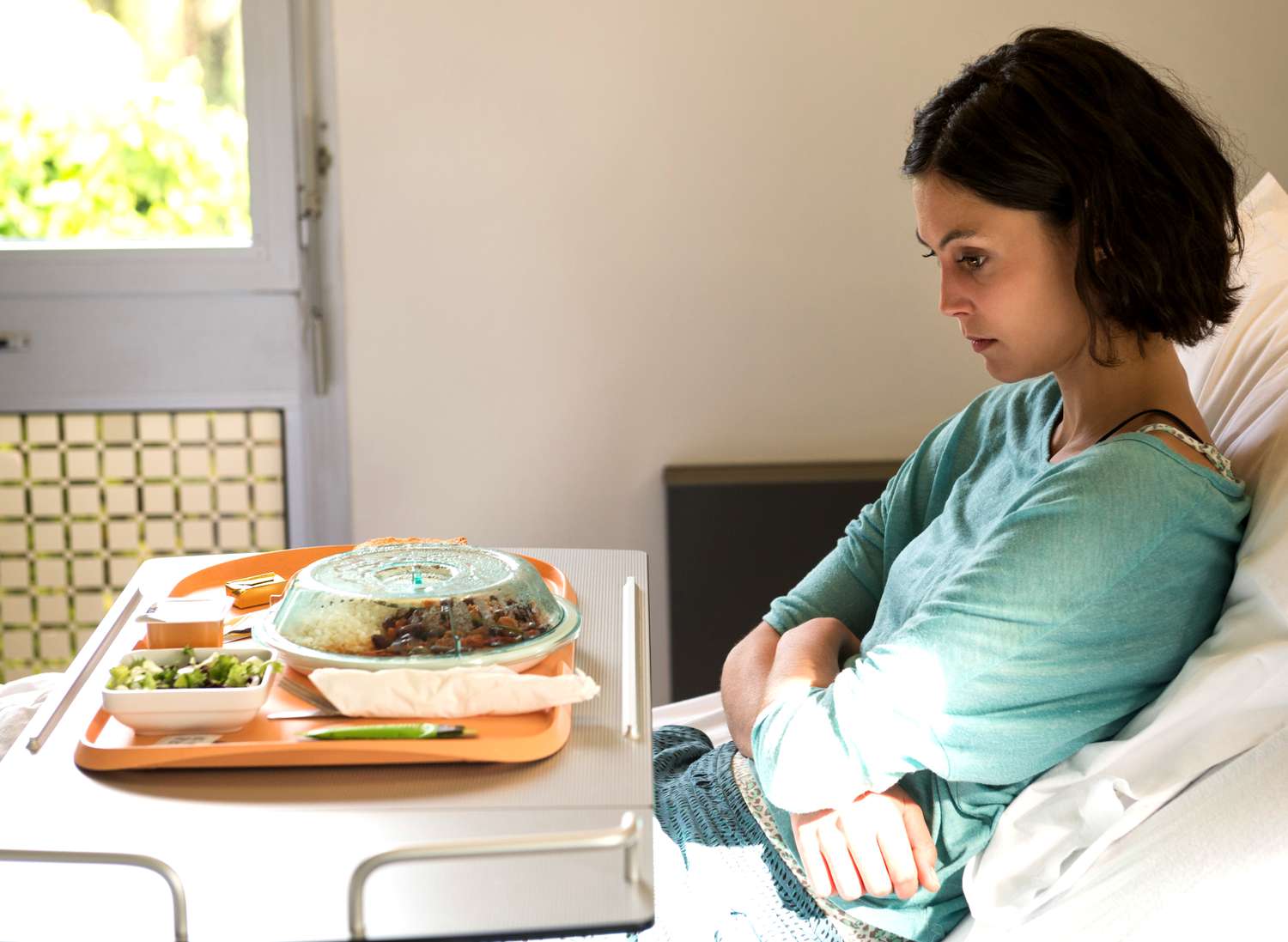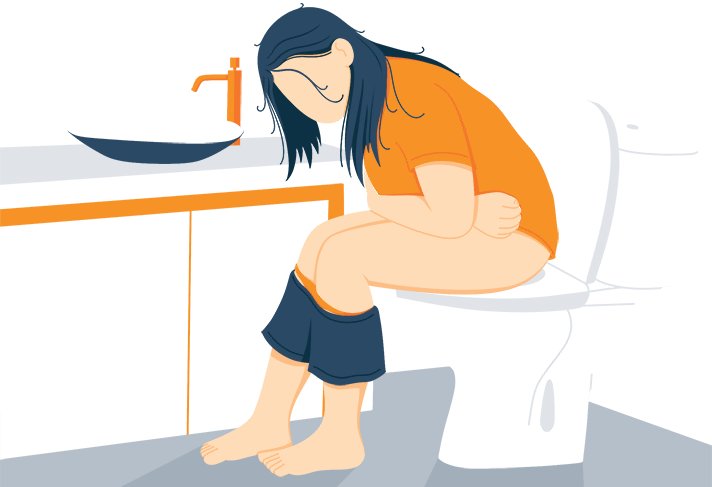Prolonged diarrhea, Chronic diarrhea of unknown origin, Chronic small bowel diarrhea, Chronic large bowel diarrhea.
Root Cause of Disease
A wide range of problems can cause chronic diarrhea; some of the most common causes include irritable bowel syndrome (IBS), inflammatory bowel disease (Crohn disease and ulcerative colitis), malabsorption syndromes, like celiac disease, in which food cannot be digested and absorbed, and chronic infections.
Symptoms
The main symptom of diarrhea is passing loose, watery stools three or more times a day.
People with diarrhea may also have one or more of the following symptoms:
- An urgent need to use the bathroom.
- Cramping.
- Loss of control ofbowel moments.
- Nausea.
- Pain in the abdomen.
People with diarrhea caused by some infections may also have one or more of the following symptoms:
- Bloody stools
- Fever and chills
- Light-headedness and dizziness
- Vomiting
Diarrhea may cause dehydration and malabsorption.
Symptoms of dehydration and malabsorption
Dehydration and malabsorption can be serious complications of diarrhea. Their symptoms in adults, infants, toddlers, and young children are as follows.
Dehydration
Symptoms of dehydration in adults may include:
- Thirst
- Urinating less than usual
- Feeling tired
- Dark-colored urine
- Dry mouth
- Decreased skin turgor, meaning that when your skin is pinched and released, the skin does not flatten back to normal right away
- Sunken eyes or cheeks
- Light-headedness or fainting
Malabsorption
Symptoms of malabsorption in adults, children, young children, toddlers may include:
- Bloating
- Changes in appetite
- Gas
- Loose, greasy, foul-smelling bowel movements
- Weight loss
Causes
Chronic diarrhea may be a symptom of a more serious or chronic condition on such as irritable bowel syndrome (IBS) or inflammatory bowel disease (IBD). Frequent and severe diarrhea could be a sign of these associated conditions:
- Inflammatory bowel disease (IBD)
- Irritable bowel syndrome (IBS)
- Infection
- Radiation therapy
- Adverse reaction to a medication
- Diabetes
- Gluten insensitivity (celiac disease)
- Lactose intolerance or other food intolerance
- Alcohol abuse
- HIV or other immunodeficiency
- Overgrowth in harmful colon bacteria due to recent antibiotic use (c. difficile colitis)
Home Remedies to treat Chronic Diarrhea
Remedy – 1: Hot water with Ghee
Materials: Ghee, salt, and hot water

Ghee is a superfood but to reap its benefits, one must know the right way to consume it. Ghee is rich in butyric acid. which is said to help relieve constipation. Butyric acid also improves metabolism and helps in the frequency and movement of stool. It also reduces abdominal pain, gas, bloating and other symptoms of constipation. Ghee is the best natural laxative and has other health benefits like increased bone strength, including weight loss and sleep. Ghee provides lubrication to the body and clears the intestine passage, which improves the movement of waste and reduces your risk of constipation.
Procedure:
- Mix 1 tsp fresh ghee and 1/2 tsp salt into 1 1/4 cup hot water.
- Stir well.
- Sit and sip this drink slowly. Should be consumed an hour after dinner.
Remedy – 2: Fennel Tea
Materials: Warm water, fennel seeds, ginger
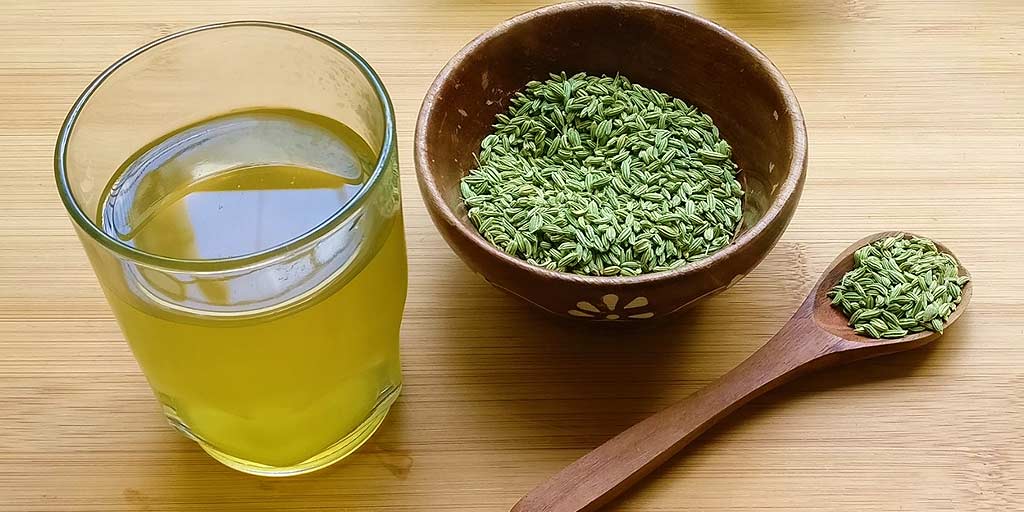
If you have an upset stomach, flatulence, or diarrhea, you might want to treat yourself to some fennel tea. The warm water of the tea may calm your digestion, and fennel itself is known to help with digestive issues.
Procedure:
- Toast 1 tsp fennel seeds and mix in 1 cup of boiled water.
- Add a few pieces of fresh ginger, a pinch of hing (asafetida), and a dash of rock salt to the boiled water.
- Sip this slowly after your meal.
Product Link: Fennel Seeds
Remedy – 3: Spiced ButterMilk.
Materials: Yogurt, Ginger, Salt, Cumin powder, Coriander leaves
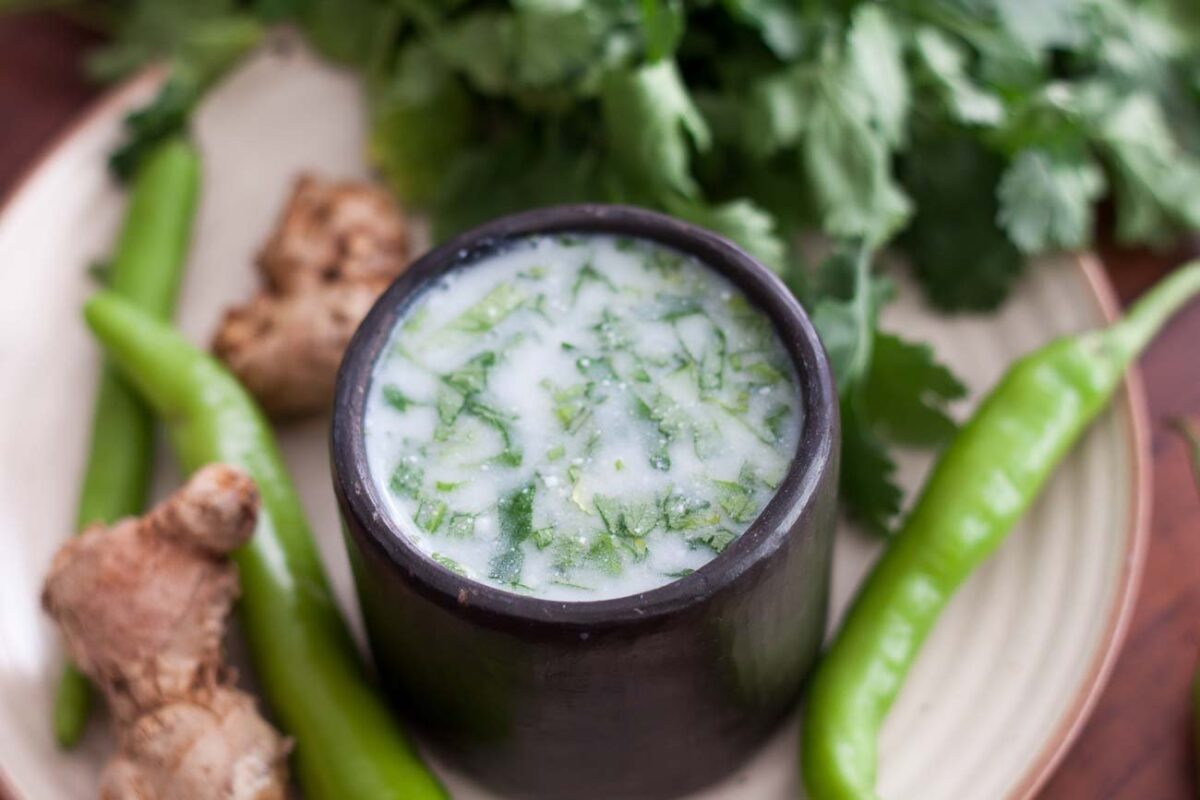
Buttermilk is considered a good source of probiotics, a friendly bacterium and helps to remove the unwanted bacteria from the intestines. It also helps in digestion and soothes the intestines.
Procedure:
- Combine 1/4 cup plain yogurt with 3/4 cup water (or double this, keeping the same ratio).
- Mix well.
- Add 1 tsp rock salt, pinch of roasted jeera (cumin) powder, a bit of grated ginger, and fresh coriander leaves.
Product Link: Salt, Curd, Cumin Seeds, Ginger
Other Remedies
Carrot soup
This kind of soup has antiseptic effects because it is high – bulk food. If you have children who suffer from diarrhea, then you should give him or her carrot soup. It has many nutrients that can help you to get rid of diarrhea and its symptoms. You will need 500 grams of carrots. You should wash them. Then, you should scrape the carrots. In the end, you should chop them. Then, you should cook the carrots with a small amount of water but be little more than ½ cup of water.
You should boil this diarrhea home remedy mixture for fifteen minutes. Then, you should add a small amount of salt in this soup because in this way it will have a better taste. You should eat this soup while it is fresh. Eat it every day in a period of a few days until you have noticed that your symptoms are improved.
Clear fluids
When you suffer from diarrhea, then in many cases this condition leads to diarrhea. You should drink at least 8 glasses of water per day. Also, you should drink coconut water and sodas which do not have caffeine in them. Also, you can eat vegetable soups and clear broths if you suffer from diarrhea. Also, you can drink sports drinks that do not have caffeine in them. When you suffer from diarrhea, then, you should not drink alcohol and beverages that contain caffeine.
Also, you should not drink citrus juices and tomato juice. You can add chicken broth in your diet. You will have all the electrolytes that you need from this diarrhea home remedy.
Preventions
Key measures to prevent diarrhea include:
- access to safe drinking-water
- use of improved sanitation
- hand washing with soap
- exclusive breastfeeding for the first six months of life
- good personal and food hygiene
- health education about how infections spread
- rotavirus vaccination.
Key measures to treat diarrhea include the following:
- Rehydration: With oral rehydration salts (ORS) solution. ORS is a mixture of clean water, salt and sugar. It costs a few cents per treatment. ORS is absorbed in the small intestine and replaces the water and electrolytes lost in the faeces.
- Zinc supplements: Zinc supplements reduce the duration of a diarrhea episode by 25% and are associated with a 30% reduction in stool volume.
- Rehydration: With intravenous fluids in case of severe dehydration or shock.
- Nutrient-rich foods: The vicious circle of malnutrition and diarrhea can be broken by continuing to give nutrient-rich foods – including breast milk – during an episode, and by giving a nutritious diet – including exclusive breastfeeding for the first six months of life – to children when they are well.
- Consulting a health professional, in particular for management of persistent diarrhea or when there is blood in stool or if there are signs of dehydration.

